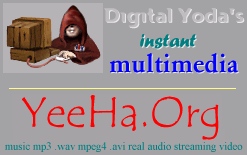
I know that people are working on this. The new KDE media player (as of KDE 2.1 this will be noatun) by default only supports mp3, mpeg1, and wav. But other formats can be installed as plugins. There are already plugins for divx and mpeg4 at http://mpeglib.sourceforge.net/, both still under development (divx is called "usable", mpeg4 "experimental, not usable"), see also http://www.projectmayo.com/.
Well, I had been playing around with Linux for several years. But much as I wanted to I just couldn't do much of my actual work on that platform. (I'm in the DTP/pre-press business and there is very little that could be used for professional publishing in Linux.) Still, I always felt a strange urge to learn more about this funny system, about the free software movement, and the Internet which somehow seemed connected to both -- to Linux/Unix and free software. So when KDE came up in 1996/97 this finally looked like a chance for a non-programmer like me to get involved. And that's how I started translating KDE to German and (later) some administrative work for KDE translation in general. At the moment we have something like 50 language teams translating KDE.
The book was more of a private thing, not an official KDE project. I was asked if I could write an introduction to KDE for German Windows users and a general overview of KDE 2 for non-experts. And I just said yes although there wasn't any money in it to speak of. The material that went into the book, however, is almost completely from the Internet, of course. KDE, like Linux and most other free software, is a child of the Internet, done by people who hardly ever see each other, coordinating their work in dozens of mailing lists and chat fora.
Well, there is no direct link between KDE and Windows except that KDE as a graphic user environment obviously learned a lot from Windows as to its usability. Also to some degree it tries to meet expectations of users coming from Windows. Apart from that, you can still use Windows programs on a Linux/Unix computer, of course. Be it that you set the machine up as a dual boot system, be it that you are using an Windows emulator, a virtual machine or a "Windows under Unix" system like WINE. But this is not KDE specific. You can do it on about any Linux/Unix machine.
I'm not sure I understand the question. KDE still has some shortcomings compared to recent Windows versions. Font handling, printing, clipboard and other communication channels between programs are still way behind. But it has been around only for a few years and it's catching up fast. On the other hand, there are lots of areas where KDE is already better than Windows. For instance the total network integration other projects are only talking about has been an integral part of KDE from the beginning. Just take a look some time at Konqueror, the KDE file manager and viewer, web browser, and ftp client. It does not make any difference between local and remote files. Nor does any other KDE program. -- So: no, we are not afraid of any comparisons. We are doing them ourselves all the time.
Hard to say. On the one hand we still can't expect people to understand without further explanation what this free software stuff is all about, administration is still striking many of deals with Microsoft, and people are falling over themselves to be photographed together with Bill Gates. On the other hand there is a lot of positive media coverage of Linux and free software development, there are lots (I mean LOTS) of free software installations in the server area, and there is an interesting tendency like in the rest of Europe to exploit Linux and other free projects as "our answer to American predominance and monopolies". So far, all this was going on in the server area mostly. If Linux/Unix and the free software projects like KDE can really make a difference in the desktop area remains to be seen. In the long run it's possible, very much so I think.
